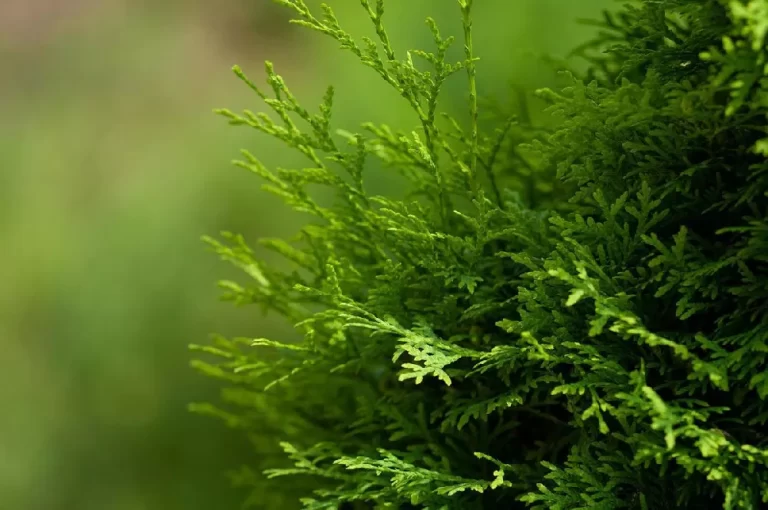Clover Lawn: A Sustainable Choice for Modern Landscaping
In recent years, the traditional green, manicured lawn has faced a charming contender: the clover lawn. Once considered a weed, clover is now being embraced for its numerous benefits and ease of maintenance. This shift signifies a growing awareness towards sustainable and eco-friendly gardening practices.
The Rise of Clover Lawns
Clover, specifically the White Clover (Trifolium repens), is gaining popularity for several compelling reasons. It’s a low-maintenance alternative to traditional grass lawns, requiring less water, no fertilizer, and minimal mowing. This resilience and self-sufficiency make clover an ideal choice for environmentally conscious homeowners.
Environmental Benefits
The environmental advantages of clover lawns extend beyond their low maintenance. Clover is a nitrogen-fixing plant, meaning it enriches the soil by converting atmospheric nitrogen into a form that other plants can absorb. This natural process reduces the need for flandsc, contributing to a healthier ecosystem. Additionally, clover lawns offer a habitat for beneficial insects like bees, supporting biodiversity.
Aesthetic and Practical Advantages
Aesthetically, clover lawns are a sight to behold. The lush green carpet interspersed with delicate white flowers adds a whimsical charm to any garden. It’s also soft underfoot, making it a great surface for children to play on. Moreover, clover is naturally resistant to pet urine spots, a common issue with grass lawns.
Installation and Maintenance
Establishing a clover lawn can be straightforward. You can sow clover seeds into an existing grass lawn or start a new lawn entirely with clover. The best time to plant is during spring or fall when the soil is moist. Once established, clover lawns require minimal mowing, usually only a few times during the growing season to keep the flowers in check, if desired.
Debunking Myths
Despite its benefits, some misconceptions about clover persist. One common myth is that clover attracts more bees, which can be a concern for those with allergies. While clover does attract bees, its low growth habit means that bees are generally not a problem when walking on the lawn. Another myth is that clover is invasive and difficult to control. In reality, clover blends well with other plants and can be easily managed with regular mowing.
Adapting to Climate and Region
The versatility of clover extends to its adaptability in various climates. It thrives in a wide range of conditions, from sunny to partially shaded areas, and can tolerate both cool and warm climates. This adaptability makes it a viable lawn choice for many regions.
Water Efficiency
One of the significant advantages of a clover lawn is its drought tolerance. Once established, clover requires significantly less water than traditional grass, making it an excellent choice for areas prone to drought or those looking to conserve water. Its deep roots help it access moisture deeper in the soil, further enhancing its drought resistance.
Maintaining a Healthy Clover Lawn
Maintaining a clover lawn is relatively straightforward. It’s important to avoid over-watering and over-fertilizing. While clover is naturally disease-resistant, proper lawn care practices, like aerating and dethatching, can promote a healthier lawn. If desired, a gentle organic fertilizer can be used in the spring to encourage growth.
Integrating Clover in Landscape Design
Clover lawns can be part of a larger landscape design. Its texture and color can complement a variety of garden styles, from the traditional English garden to modern, minimalist landscapes. Clover can also be used in areas where grass struggles to grow, like under trees or in shady spots.
Cost-Effectiveness
Another compelling reason to consider a clover lawn is its cost-effectiveness. The initial cost of clover seed is typically lower than grass seed, and the reduced need for watering, fertilizing, and mowing translates to long-term savings. This makes it an attractive option for those looking to reduce lawn care expenses.
The Role of Clover in a Sustainable Future
As we become more conscious of our environmental impact, clover lawns represent a shift towards sustainable living. By choosing clover, homeowners can reduce their carbon footprint, support local ecosystems, and contribute to a healthier planet. This movement towards eco-friendly lawns is not just a trend but a meaningful step towards a more sustainable future.
FAQs: Answering Your Clover Lawn Questions
Q: How does clover handle foot traffic?
A: Clover is quite resilient to foot traffic, though it’s not as hardy as some grass species.
Q: Will clover outcompete other plants?
A: Clover coexists well with many grass types and garden plants.
Can I mix clover with grass?
Yes, mixing clover with grass can create a robust, self-fertilizing lawn.
Conclusion
As we embrace a greener future, the decision to plant clover over traditional turf grass becomes increasingly appealing. Dutch clover, a popular variety, offers a unique blend of aesthetics and functionality, making it an ideal choice for those seeking a lush, green lawn with ecological benefits. Planting clover, particularly in early spring, sets the stage for a season of vibrant growth. The early timing takes advantage of cooler temperatures and natural rainfall, helping clover lawn seed to establish robustly.
As clover roots delve deep into the earth, they create a living mulch that enriches the soil and supports a healthier, more resilient lawn. This transformative process not only enhances the soil’s fertility but also contributes to the overall well-being of the local ecosystem. The journey to plant a clover lawn is a step towards redefining the traditional green space. Clover grass, with its charming blooms and soft texture, offers a refreshing alternative to conventional lawns.
Its low-maintenance nature, coupled with its ability to thrive in a variety of conditions, makes it an attractive option for gardeners and homeowners alike. The environmental benefits, such as nitrogen-fixing capabilities and support for pollinators, further solidify clover as a responsible and sustainable choice. By choosing to plant a clover lawn, individuals contribute to a larger movement towards eco-friendly living, where each green lawn plays a vital role in fostering a healthier, more sustainable world.



